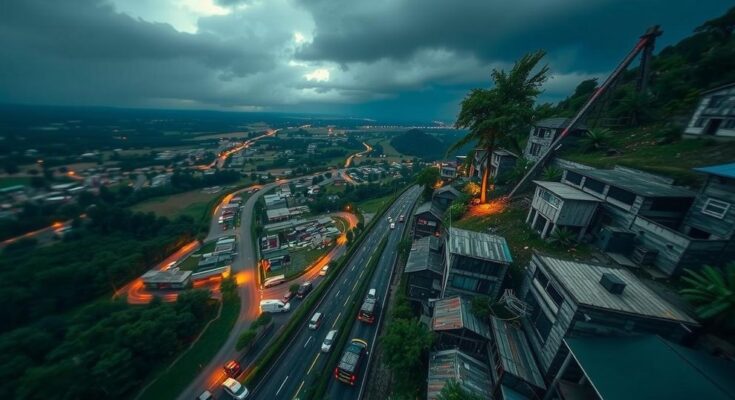Eastern DRC is experiencing escalating violence, with recent massacres attributed to the Allied Democratic Forces amid ineffective intervention from local and international military forces. The region, facing peak internal displacement and human rights violations, illustrates the inadequacies of traditional international peacebuilding efforts, with simplistic narratives and inconsistent policies contributing to a prolonged humanitarian crisis. As new actors shape the geopolitical landscape, a reassessment of international strategies becomes crucial for the welfare of affected civilians.
The ongoing crises in the eastern Democratic Republic of the Congo (DRC) reveal an alarming pattern of failed international responses to conflict and humanitarian needs. Notable incidents of violence, including the recent massacre near Beni where at least 18 individuals lost their lives on August 10 and earlier tragedies that claimed scores of victims, underscore the deep-rooted security challenges faced by civilians in the region. Attacks, attributed primarily to the Allied Democratic Forces, a rebel group that has aligned with the Islamic State, frequently occur without intervention from Congolese or foreign military personnel, raising significant concerns about the effectiveness of existing peacekeeping operations. Decades of violence have rendered eastern DRC a landscape of suffering, with internal displacement figures peaking at nearly 7 million, as reported by the International Organization for Migration. Efforts by the international community, including significant financial contributions towards conflict resolution and peacebuilding, appear to lack the necessary depth of understanding regarding the region’s intricate political realities. Instead, responses often lean on outdated narratives that oversimplify the conflict, attributing it solely to resource struggles or ethnic tensions, while neglecting the broader socio-political dynamics at play. Recent developments, such as the rise of the March 23 Movement (M23) in the past three years, have elicited renewed international attention, yet this focus threatens to overshadow the multitude of armed groups operating throughout eastern DRC, many of which contribute to ongoing violence and displacement. Additionally, international frameworks have been criticized for applying a technocratic lens to political crises, resulting in superficial measures that fail to address the underlying issues of corruption and alliances with armed groups. The inconsistent responses to the military activities of neighboring countries also highlight a lack of coherence in international strategies, particularly when juxtaposed against geopolitical interests. As the dynamics in the region evolve, new actors enter the fray, creating a more complex landscape where traditional Western influence is challenged by emerging powers often motivated solely by self-interest. Consequently, the landscape of conflict response is increasingly fragmented, raising concerns over the long-term humanitarian impacts and the continuing suffering of civilians caught in the crossfire.
The eastern Democratic Republic of the Congo is marred by a history of violence and instability fueled by armed groups, political power struggles, and external influences. The region has been characterized by chronic conflict, leading to severe humanitarian crises with millions displaced and vulnerable. Despite the presence of international agencies and peacekeeping missions, the responses to escalating violence often prove inadequate. The recent resurgence of groups such as the March 23 Movement has brought renewed scrutiny to the region’s plight, yet the broader context of ongoing armed conflict and international disengagement poses significant challenges.
In summary, the complex crisis in eastern DRC illustrates the shortcomings of traditional international peacebuilding efforts, which have failed to adapt to the region’s dynamic and multifaceted political landscape. With millions of civilians suffering amidst escalating violence, it is imperative for the global community to reassess its strategies and adopt a more nuanced approach that considers the political intricacies and the historical context of the crisis in order to provide meaningful support and foster long-term stability.
Original Source: www.aljazeera.com




